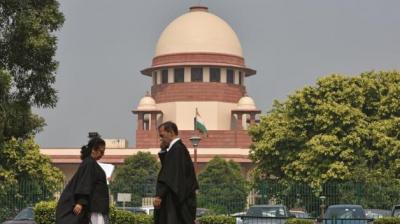Poor think note ban will make them richer: Survey
These are basic findings of a survey conducted among daily labourers in Jaipur city last week.
Jaipur: Much to the dismay of Prime Minister Narendra Modi’s political opponents, India’s poor and labour class is convinced that demonetisation will bring lots of financial benefits and equality for them. Contrary to Congress vice-president Rahul Gandhi’s allegation that demonetisation is devised to benefit the rich at the expense of poor, they have rather bought the PM’s promise of alleviating poverty.
These are basic findings of a survey conducted among daily labourers in Jaipur city last week that seeks to provide answer to the critics of demonetisation who are baffled as to why there was no visible anger among people.
Preliminary report of the survey “Impact of Demonetization on Casual Labour at the Chowkhtis of Jaipur” perhaps the first in the country was conducted by interns of People’s Union for Civil Liberties (PUCL) and Bharat Gyan Vigyan Samiti (BGVS). The report was released on Friday.
It found that people who have been supportive or rather not angry with the government because they are under false impression that money would flow into their account as the PM had announced that he would take away ill gotten wealth of the rich to distribute to the poor.
“People told us that at the end of 50-days, they would get money into their account although the figure varied from Rs 5000 to Rs 15,000,” said Tanaiy Tewari from Christ University, Bengaluru, one of the 65 students who took part in the survey that interviewed 700 casual labourers across 20 chowkhtis in Jaipur.
According to interns, during the interviews people told stories of miseries faced by them yet they said it was a good step. About 45 per cent thought it was a bad step while 28 per cent said that it was a good one. This is despite the fact that 95 per cent respondents admitted that after demonetisation there was big drop in employment as only one third people are able to find work that too at 40 per cent lower wages while 86 per cent complained of hunger. Yet, they felt that the trouble was worth it as not only will they get money but their loans too would be waived off.
Explaining this, activist Ashok Khandelwal who prepared questionnaire for the survey said that when even economists and experts differ on actual impact and scale of note ban how one can expect the poor and illiterate to think rationally. “They are susceptible to such propaganda,” he said.
Supporting him, Kavita Shrivastava of PUCL said that the findings clearly showed that these people are not even aware of what is black money and demonetization. “You can see that 36 percent people have no idea what black money is while 16 per cent think that it is money with rich people,” she said adding that this lack of knowledge about black money is what instrumental in their belief that demonetization would remove their poverty and bring them at par with the privileged class.
However, fear was also a major factor as many interns also said that that during the survey people were afraid to speak their mind in public. “Some people always came up whenever we began interviewing people,” they said.
Among the respondents around 36 per cent did not have bank accounts while of the 64 per cent who have bank accounts nearly half never been to bank.


















